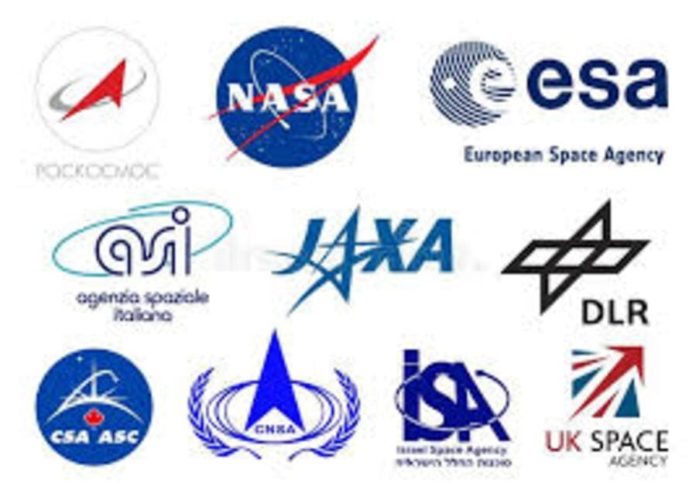Climate change is one of the most pressing challenges of our time, and space agencies around the world are playing a crucial role in understanding and combating its effects. From monitoring Earth’s atmosphere to developing innovative technologies, these agencies offer a unique perspective that helps scientists, governments, and environmental organizations better understand the state of the planet and devise strategies to mitigate climate change.
In this article, we’ll explore how space agencies like NASA, the European Space Agency (ESA), and others contribute to the fight against climate change, and why their work is more important than ever.
Space-based monitoring of Earth’s climate
One of the most significant contributions space agencies make to climate science is through satellite observations. Satellites orbiting Earth provide critical data on various environmental factors, such as temperature, sea levels, greenhouse gas concentrations, and ice cover, helping scientists track changes in the planet’s climate over time.
1. Tracking greenhouse gas emissions
Space agencies use advanced instruments aboard satellites to monitor levels of carbon dioxide (CO2) and methane, two of the most important greenhouse gases driving global warming. For example, NASA’s OCO-2 (Orbiting Carbon Observatory-2) and ESA’s Sentinel-5P satellites provide high-resolution data on CO2 and methane emissions. This data is essential for tracking how human activities, like industrial processes and deforestation, contribute to rising greenhouse gas levels.
- Why it matters: By understanding where and how much greenhouse gas is being emitted, policymakers can develop more targeted strategies to reduce emissions and meet climate goals.
2. Monitoring ice loss and sea level rise
Satellites like NASA’s ICESat-2 and ESA’s CryoSat provide detailed measurements of ice sheets, glaciers, and sea ice. This data is critical for understanding the rate of ice loss in polar regions and its impact on global sea levels.
- Why it matters: Rising sea levels are one of the most direct and potentially devastating effects of climate change, threatening coastal communities and ecosystems. Accurate data from satellites helps scientists predict future sea level rise and inform adaptation strategies for vulnerable regions.
3. Tracking deforestation and land use changes
Satellites are also vital for monitoring changes in forests, which act as carbon sinks by absorbing CO2 from the atmosphere. Space agencies like NASA and ESA use remote sensing technologies to track deforestation and land use changes in real time, providing critical insights into how human activities affect global carbon cycles.
- Why it matters: Deforestation contributes significantly to climate change by releasing stored carbon into the atmosphere. Satellites provide accurate, up-to-date information that can help countries manage forests more sustainably and reduce emissions.
Supporting climate research and modeling
Space agencies don’t just collect data—they also play a key role in developing and improving climate models that help predict future climate scenarios. These models incorporate satellite data on temperature, cloud cover, and atmospheric composition to simulate how Earth’s climate system might evolve under different conditions.
1. Improving weather forecasting and extreme event prediction
By providing more accurate data on ocean temperatures, atmospheric conditions, and weather patterns, satellites help improve the accuracy of weather forecasts and the prediction of extreme weather events like hurricanes, floods, and droughts. For instance, NASA’s Global Precipitation Measurement (GPM) mission provides real-time data on precipitation, helping scientists and governments prepare for and respond to extreme weather.
- Why it matters: As climate change leads to more frequent and severe weather events, better prediction tools are essential for disaster preparedness and reducing the impact on communities.
2. Long-term climate modeling
Satellites also contribute to long-term climate research by providing decades of continuous data. This long-term view is essential for understanding trends and changes that happen over many years or decades, such as shifts in ocean currents, temperature anomalies, and changes in the frequency of extreme weather events.
- Why it matters: Long-term climate models help governments plan for the future, guiding decisions on everything from infrastructure development to agricultural practices in a changing climate.
Innovating sustainable technologies
In addition to gathering data and supporting research, space agencies are also innovating in the field of sustainable technologies, which can help reduce humanity’s environmental footprint.
1. Clean energy development
Space agencies are at the forefront of developing technologies that could revolutionize how we generate and use energy. For instance, NASA and ESA are researching the potential for space-based solar power—collecting solar energy in space and beaming it down to Earth as a clean, renewable energy source.
- Why it matters: As the world transitions to renewable energy, technologies developed by space agencies could play a key role in providing a constant, reliable energy supply.
2. Earth observation for agriculture
Using Earth observation technologies, space agencies can help farmers manage water usage more efficiently, monitor soil health, and optimize crop yields in the face of climate change. NASA’s Landsat program has been instrumental in providing data that supports precision agriculture, helping reduce waste and improve sustainability in food production.
- Why it matters: Agriculture is one of the sectors most affected by climate change. By helping farmers adapt, space-based technologies can contribute to food security and sustainable farming practices.
International collaboration in space and climate action
Climate change is a global challenge that requires international cooperation. Space agencies frequently collaborate across borders to pool resources, share data, and develop new tools to tackle climate change.
1. The Committee on Earth Observation Satellites (CEOS)
CEOS is an international organization of space agencies dedicated to coordinating satellite observations of Earth. It facilitates data sharing between countries, ensuring that scientists around the world have access to critical information about the state of the planet.
- Why it matters: By fostering collaboration, CEOS ensures that all countries, including those with fewer resources, can benefit from satellite data and contribute to the global fight against climate change.
2. The paris agreement and space agencies
Space agencies play an essential role in supporting the Paris Agreement, the global accord aimed at limiting global warming to well below 2°C. Satellite data helps countries track their progress toward reducing emissions and meeting their climate targets, while also providing transparency in global efforts to curb climate change.
- Why it matters: Reliable data is crucial for ensuring accountability and driving effective climate action on a global scale.
The future of space agencies in tackling climate change
As the impacts of climate change become more severe, the role of space agencies will continue to grow. New missions are being planned to further improve our understanding of the planet and its changing climate. For example, NASA’s upcoming PACE (Plankton, Aerosol, Cloud, ocean Ecosystem) mission will provide new insights into the health of Earth’s oceans and atmosphere, and ESA’s CO2M (Copernicus Anthropogenic CO2 Monitoring) mission will be the first to specifically monitor human-caused CO2 emissions.
The future will also likely see increased investment in innovative technologies for sustainability, such as carbon capture and space-based geoengineering solutions.
Space agencies are at the forefront of the battle against climate change, offering a unique and indispensable perspective on Earth’s environment. Through satellite monitoring, climate modeling, technological innovation, and international collaboration, they provide the data and tools needed to understand, mitigate, and adapt to the effects of global warming. As the world continues to confront the climate crisis, space agencies will remain key players in shaping a more sustainable future for our planet.













